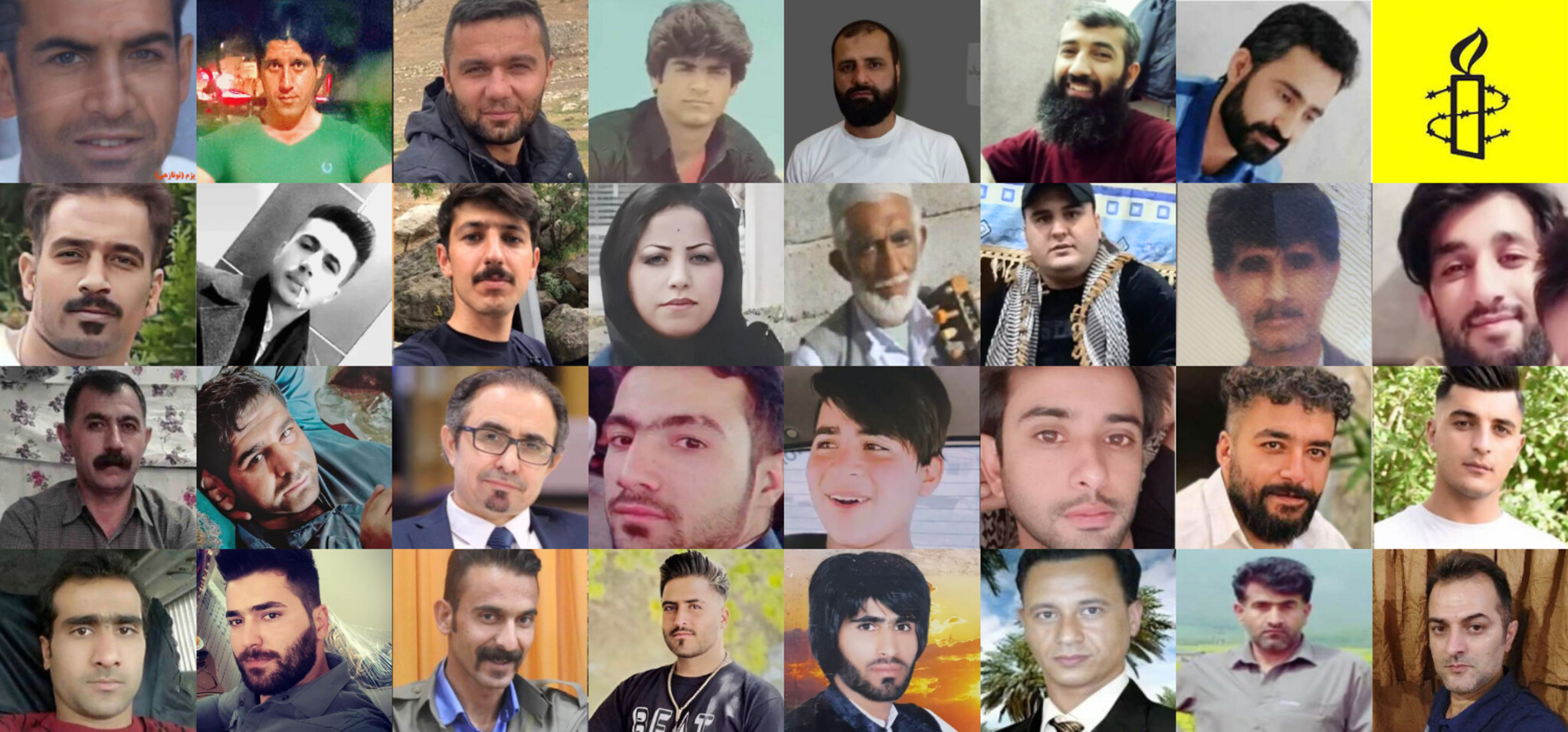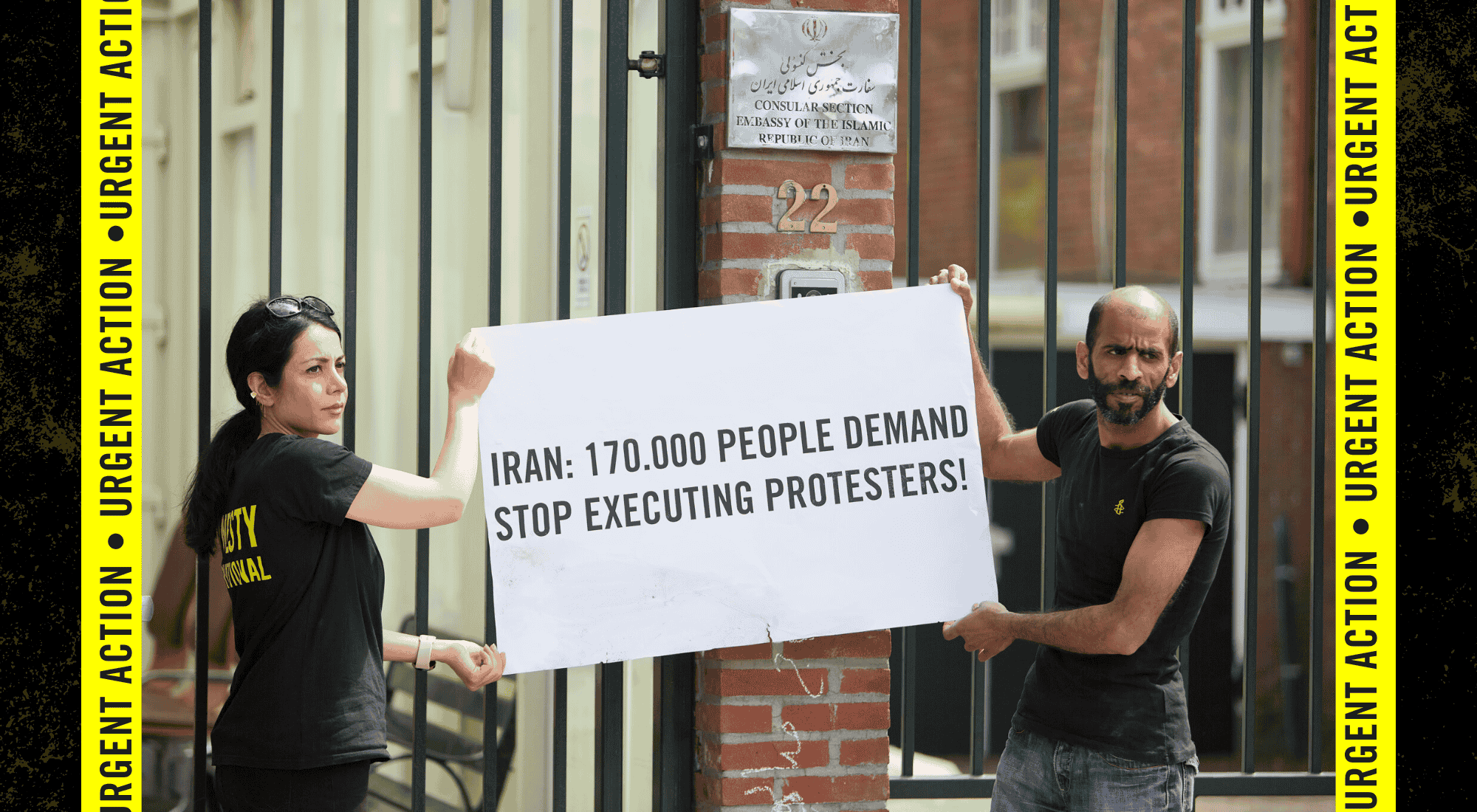Iran is facing a deepening execution crisis that has reached horrific levels. Thousands of people are at risk of execution after being sentenced to death. Many face charges related to drugs or vague, overly broad offences. These convictions often follow grossly unfair trials. Others remain under investigation or prosecution on capital charges.
Since the 2022 “Woman, Life, Freedom” uprising, the authorities have increasingly weaponized the death penalty as a tool of repression. In 2025 alone, more than 800 people have already been executed.
Here’s what you can do:
Write to the Head of Judiciary urging the Iranian authorities to:
- Immediately halt all planned executions and quash existing death sentences.
- Establish an official moratorium on executions, as a step toward fully abolishing the death penalty.
- Reform national legislation to meet international law and standards by repealing mandatory death sentences and removing the death penalty for drug-related and vaguely worded offences.
Write to:
Head of judiciary,
Gholamhossein Mohseni Ejei
c/o Embassy of Iran to the European Union,
Avenue Franklin Roosevelt No. 15,
1050 Bruxelles,
Belgium
Salutation: Dear Mr. Gholamhossein Mohseni Ejei,
Widespread use of the death penalty
According to information gathered by Amnesty International, including from primary sources and human rights defenders outside Iran, scores of people are under sentence of death and at grave risk of execution. Many were convicted after grossly unfair trials on politically motivated charges, such as “enmity against God” (moharebeh), “corruption on earth” (efsad-e fel-arz), and “armed rebellion against the state” (baghi).
Among them are at least three women: Pakhshan Azizi, Sharifeh Mohammadi, and Verisheh Moradi. There are also at least 50 men, including academics, artists, activists, and members of minority communities. Officials’ statements suggest that thousands more may also be facing execution, either after sentencing or during investigations and prosecutions on capital charges. These include drug-related offences and vaguely defined charges that violate the principle of legality under international law.

Escalating executions since 2022
In the wake of the “Woman, Life, Freedom” uprising in 2022, Iranian authorities have increasingly weaponized the death penalty to instil fear and tighten their grip on power.
Executions have surged in recent years. At least 853 people were executed in 2023, a 48 percent increase from 2022. In 2024, Amnesty International recorded 972 executions, the highest since 2015, with more than half linked to drug-related offences. This trend reflects Iran’s return to a harsh anti-drug policy, in direct violation of international law, which prohibits the use of the death penalty for such crimes.
Targeting minorities and Afghans
Iran’s use of the death penalty disproportionately impacts oppressed minorities, including Afghan, Baluchi, and Kurdish communities. The number of Afghans executed rose dramatically from 25 in 2023 to 80 in 2024, with about half executed for drug offences. This increase coincided with rising hate speech and discriminatory treatment of Afghans.
The situation worsened after hostilities between Israel and Iran escalated in June 2025. Officials intensified racist and xenophobic rhetoric, referring to Afghans as “foreigners” or “unauthorized nationals.” Authorities accused Afghans of “espionage” for Israel without evidence. Since June 14, at least five Afghans have been arrested on such charges, with state media broadcasting the forced “confessions” of four of them.
Calls for faster executions and Amnesty’s position
Senior officials, including judiciary head Gholamhossein Mohseni Eje’i, have publicly called for expedited trials and executions of those accused of “supporting” or “collaborating” with hostile states such as Israel. State-affiliated media has even advocated for mass killings similar to the 1988 prison massacres. Since June 13, at least nine men have already been executed on politically motivated charges or accusations of espionage for Israel.
Amnesty International opposes the death penalty in all cases, without exception. It is the ultimate cruel, inhuman, and degrading punishment and a violation of the right to life, as set out in the Universal Declaration of Human Rights. Amnesty calls on Iran and all countries that retain the death penalty to immediately establish a moratorium on executions, with the goal of full abolition.
Please take action as soon as possible until December 31, 2025. The UA will be duly updated should there be the need for further action.




























